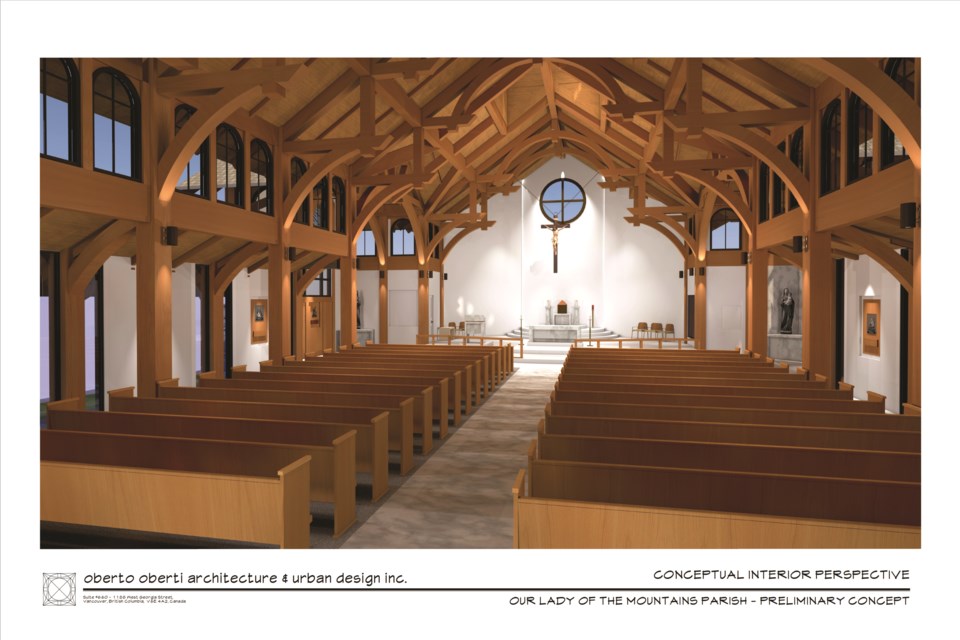I had been a member of the local Catholic church group for almost three decades. It was there, through the church choir and community of faithful, that I made my home away from home. At the time, Catholic masses were held at Myrtle Philip Elementary, and choir practices were held in our homes. It wasn't until 1996 that, in a joint effort of many, the Our Lady of the Mountains Catholic Church was born.
The church became a space not only for sharing faith, but also sharing meals and friendships. It was a refuge for thousands of visitors every year. I have countless memories of singing at weddings, funerals, celebrations of life, piano recitals, baptisms and other events. Our church was always a welcoming, inclusive space; there was room for everyone.
It came as all the more a shock to myself and others when, in 2018, the then newly appointed priest pronounced the church “not sacred enough” for him to serve masses in. This cynical, disconnected comment marked the beginning of what can easily be described as a return to the Dark Ages for our parish.
In response to previous reports on the controversial expansion of Whistler’s Catholic church, Whistlerites should not remain oblivious or complacent to the politics behind this seemingly innocent and generous contribution. With a prospective North American counterpart to the Santiago de Compostela in mind, it is clear that the Napa Institute is ready to conquer new territory. Not by conversation or invitation, but by sheer force of financial and political bravado. Boasting formidable Trump and U.S. Republican associates and donors among its ranks, an anchored presence of the ultra conservative institute is a concern not just for Whistler, but the entire Sea to Sky corridor.
Part and parcel with a broader action plan for the region, the project is not just about improving existing church spaces, or building a pilgrimage destination of the faithful, but about attracting a specific kind of Christian following. Father Andrew L’Heureux’s harrowing, nonsensical ramble about the supposed looming threat of identity politics and Napa’s refusal to comment on exactly how their values align with those of the community should be enough for us to remain vigilant for what is to come (see Pique, July 14: “Whistler’s Catholic church looks to expand its footprint and presence—but not all are onboard”).
Judging from Pique’s news coverage, and G.D. Maxwell’s opinion column last week, there does not seem to be much of an interest in dialogue, or in actually accommodating the needs and values of the local congregation. Qui bono? Once domesticated, how much sway will Napa and its associates have in the local politics of Whistler? What kind of vision are they bringing into the community? Poising themselves as enemies of Black Lives Matter and LGBTQI causes, the vision is that of those who recently brought down Roe v. Wade and debilitated access to reproductive health-care for millions of women, and young girls, across the United States.
The whip of conservative backlash against equality and human rights is reaching for the north, and for Whistler.
Let’s also not forget where we stand in history here. As the letter to the editor of BC Catholic pointed out, the timing of flamboyant spending on this unnecessary church build stands in deep disconnect with present issues of the Catholic Church not only in British Columbia but nationwide, such as the unmarked Residential School children’s graves and child sexual abuse scandals. How is the presence of a conservative, exclusionary and archaic church and its U.S.-based christian-conservative organization going to nourish and move this community forward?
So, my question is: are we going to remain complacent, or take action and stand up for what’s right? Unless we start paying attention now, tomorrow might already be too late.




